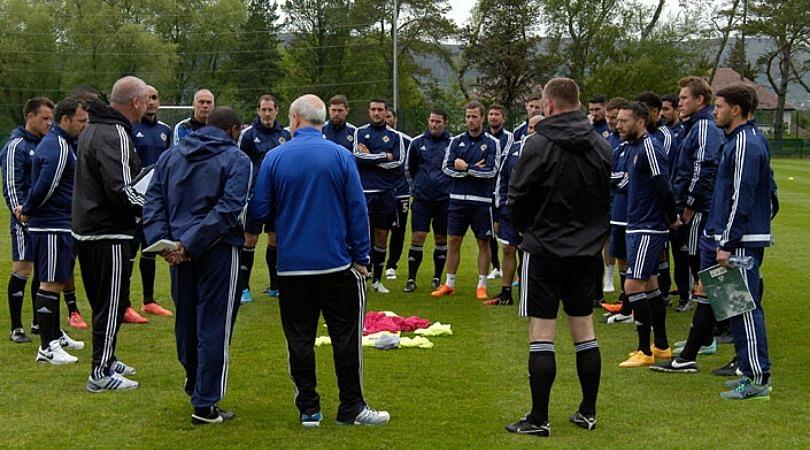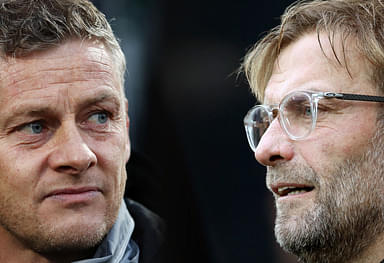What happens inside UEFA Pro License course, former players explain the tedious routine they go through before they complete the course.
Many football players take up the UEFA Pro License course in order to fresh start their careers as a manager. The total shift in working style often brings in different kind of challenges which they never faced on the field. A report by the Bleacher Report explains how it works.
“You’d think that playing at Old Trafford in front of 80,000 people is far more nerve-racking,” the former Portsmouth, Middlesbrough and West Ham United midfielder tells Bleacher Report.
“But because that’s what you’re accustomed to, getting up to speak in front of a room full of people is more difficult. When you’re playing, you don’t think about it. You’re just sat in your seat, judging the manager, laughing at him with the lads, going, ‘What’s he talking about?’
“Whereas when you’re up there with the laser pen in your hands, being in control of the slides, you realise how difficult it is. There might only be 20 of you in the room, but you sit there thinking, ‘Please don’t pick me. I really don’t want to get up.'”
Moreover, there is an added pressure of showcasing presentations in front of their peers, plus a worry of any gesture and word could be scrutinised by their course assessors.
“Being able to use different types of software I found difficult,” says O’Neil, who studied for his Pro Licence with the Irish Football Association in Belfast. “Before I went on the Pro Licence, the extent of my iPad use was watching Netflix on away trips.”
A pro license is a compulsory requirement for any individual aiming to be a professional manager in one of Europe’s major leagues. Thus, it changes the tangent of working, especially of players, who were used to just focus on themselves.
“There’s a lot more work than you think as a player,” says former Wales international Andrew Crofts, who is also working towards his Pro Licence.”
“You haven’t got any idea of the amount of work that coaches and managers put in. And why should you, really, because all you’re concentrating on is playing.”
Courses typically take around a year to complete, during which candidates must undergo a minimum of 360 hours of study (144 hours of off-pitch theory units and 216 hours of on-pitch practical units), plus nine hours of assessments.
A group of coaching education experts at UEFA sets the core curriculum, which is delivered by the continent’s national federations (43 of UEFA’s 55 member associations offer Pro Licence courses).
The courses are delivered over a succession of residential get-togethers and include one four-day seminar at UEFA’s headquarters in the Swiss town of Nyon.
“It’s about producing coaches who are the creme de la creme,” says Frank Ludolph, UEFA’s head of football education services. “They are the top coaches in the elite game, and they need to ensure that their players are developing in the right direction. They need to face all the demands of the modern game.”
Candidates are continually assessed over the duration of a Pro Licence course, and although it is possible to fail the course, the emphasis is on helping people to develop the skills that they need to pass it.
Also read: FIFA Chief warns Football associations against restarting football too early
Only candidates who disengage, either due to disinterest or a change in circumstances, are in danger of not passing.




